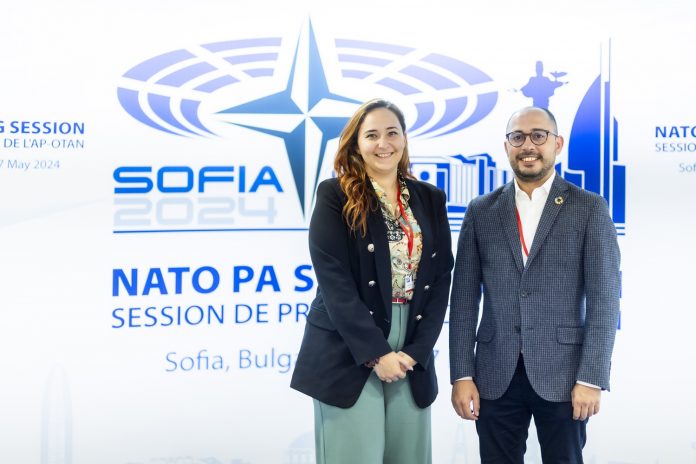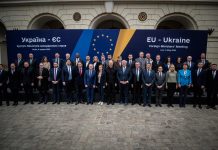During the Plenary meeting of the Spring Session of the NATO Parliamentary Assembly held in Sofia, Bulgaria, between the 24 and 27 May 2024, the Maltese Parliament has been unanimously granted Associate Membership within the NATO Parliamentary Assembly (NATO PA), thereby allowing Maltese MPs to start participating in NATO PA meetings. On this occasion Malta was invited as a guest delegation following a request submitted by the Parliament of Malta in October 2023 to become an associate member of the Parliamentary Assembly. The Maltese Parliament was invited to the 2024 Spring Session as a prospective Associate Member of the NATO PA and was represented by MPs Randolph De Battista and Bernice Bonello.
The Spring Session was divided in two parts. The Committee Meetings, held on 25 and 26 May, consisted of five main sessions covering Defence and Security, Economics and Security, Science and Technology, and Democracy and Security, as well as a meeting of the Political Committee. Each Committee covered its own agenda and adopted respective reports and resolutions.
The Defence and Security Committee addresses the military aspects of Alliance security. The Defence and Security Committee examines Alliance transformation, capabilities, ongoing operations, near and long-term threat perspectives, as well as partnerships and programmes to find how NATO can continually improve its readiness, effectiveness, and interoperability. The Economics and Security Committee encourages the elimination of conflict in international economic relations and encouraged economic collaboration among the Allies. The Science and Technology Committee ensures the role of science and technology maintains both the security and prosperity of the nations of the Euro-Atlantic Community. It considers both the challenges arising from science and technology, and the opportunities that science and technology offer to address the defence and security challenges faced by the Euro‑Atlantic area and beyond. The Committee on Democracy and Security has maintained a consistent focus on the aspects of Euro-Atlantic security which, directly or indirectly, relate to the responsibilities, protection, and welfare of civilians. The Political Committee focuses on all political questions concerning the security of NATO and its member and partner countries.
The subject of Culture Wars and Democracy: The Security Dilemma was discussed during the first session of the Committee on Democracy and Security. This session examined the issue of disinformation and how this can be tackled. In his intervention, Hon. Randolph De Battista called for a more coordinated and concrete action to fight disinformation, and to attack the sources of disinformation, which only aim to challenge peace and human rights. He argued that the approach should not remain defensive but should be pre-emptive.
The Spring Session came to an end with the final part on 27 May, where the Plenary Session took place. Ongoing challenges in the Western Balkans were addressed, alongside strategies to support partners at risk and enhance engagement with the Global South. These deliberations aimed at underscoring the Assembly’s commitment to stability in key regions of strategic interest as well as to fostering broader dialogue on global challenges. The Assembly adopted an in-depth reform of its partnerships, and it was during this session that partnership in favour of Malta’s and Kosovo’s requests to become associate member delegations was approved. The Plenary Session was addressed by Michal Szczerba, President of NATO Parliamentary Assembly, Dimitar Glavchev, Prime Minister of Bulgaria, and by Jens Stoltenberg, Secretary General of NATO and Chairman of the North Atlantic Council.
The NATO PA is made up of 281 delegates from the 32 NATO member countries. Each delegation is based on the country’s size and reflects the political composition of the parliament, therefore representing a broad spectrum of political opinion. Other parliamentary delegations are invited on an ad hoc basis for certain meetings and activities. At present, the NATO PA comprises 274 voting delegates from NATO’s 31 member states and non-voting delegations from 10 countries – all located in Europe or in the Caucasus – as well as a non-voting delegation from the European Parliament. There are also four regional non-voting partners from the wider Mediterranean region: Algeria, Israel, Jordan, and Morocco.
Ritratt: HOR










